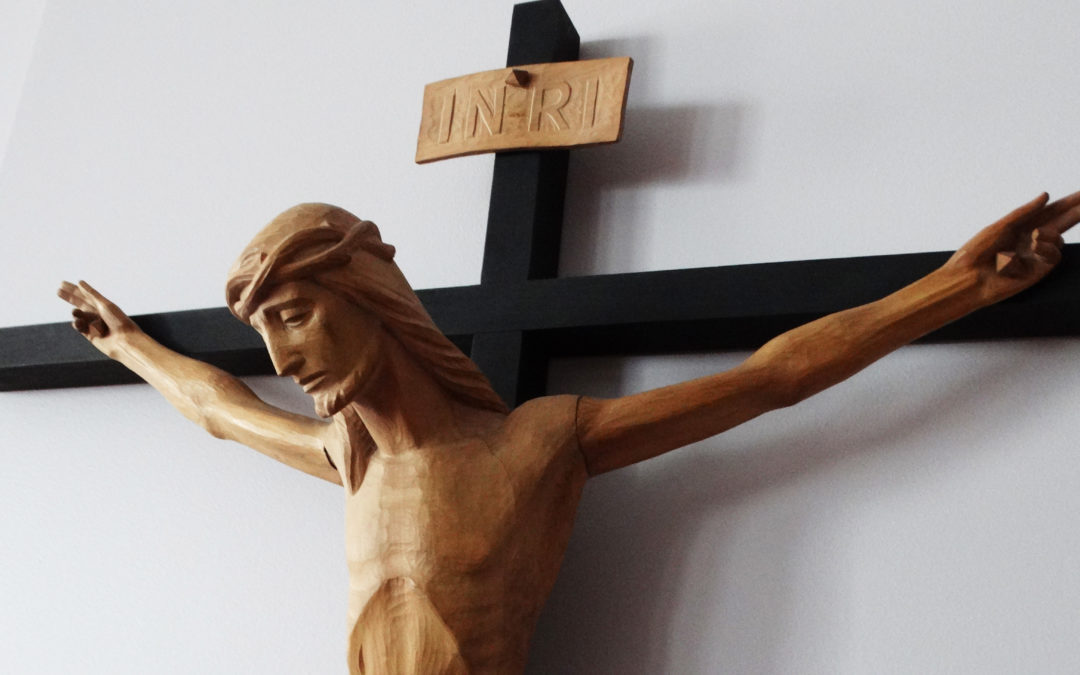David Kelly, C.PP.S.
Jesus was killed, says Richard Rohr, in a “collision of cross-purposes, conflicting interests, and half-truths, caught between the demands of an empire and the religious establishment of the day.”
The people of God are confronted similarly today as we strive to respond to the call of discipleship in a society and Church torn by one crisis after another. The moral authority of the Church has been weakened by the sexual abuse crisis and cover-up, but the need for healing and reconciliation are real; the cries of the world still sound.
The cross becomes that location where all those struggles and sufferings collide. It is as if we are caught in the crosshairs; exposed in a space that is conflicted, emotional and without clear definition. But the promise is that if we are faithful and remain in that space, we will be changed (resurrection); we will become a new creation.
Don’t get me wrong, this is not an easy vocation; discipleship has its cost. In addition, it is counter intuitive. We naturally seek to distance ourselves from suffering and pain. And yet, as Christians—followers of Christ—we are the visible body (love) of God in the world today. We are called to be the compassion that is God (Rohr).
One of the greater compliments about the Precious Blood Ministry of Reconciliation is when we hear “there is something about this place that is so life giving.” People describe PBMR in a host of ways, but hospitality and warmth are always a part of their description. The art on the walls is part of it; the young and old who can be seen in the corridors and sitting around tables are part of it, too. But I think the thing that people walk away with is that we embrace the pain and suffering that is a part of life without letting it defeat us or cause us to retreat into ourselves.
As I write this article, the mothers are gathering in the next room. If you walk by, you will hear their voices that carry a host of emotions. There are laughter and silent sobs in almost the same breath. The pain and the suffering of losing a child to homicide or incarceration are very real—and, in that space, embraced. But in that collision of emotions, life bursts forth. They embrace the pain of one another and because of it, they are renewed and strengthened.
There are many barriers to making this journey. Mothers ride buses, negotiate work schedules and childcare responsibilities, and a host of other challenges in order to gather for these few hours. While touching the woundedness is not easy, they have come to believe that unless they are willing to touch the pain, they will be overcome by it.
The Church could learn a thing or two from these mothers. While it is uncomfortable, we need to touch the woundedness—our own and others. If we don’t, if we are unwilling, the pain and woundedness will define us.
February 14, a day to honor love between people, is also the one-year anniversary of the violent death of 14 students and three faculty of the Marjory Stoneman Douglas High School in Parkland, Fla. Certainly, there have been other shootings on high school campuses, but the Parkland students are remembering, too, because they did not allow the tragedy to define them, but became the voice and the face of moral courage.
The Parkland shooting is remembered and mourned, vigils and memorials recall that day and the lives of those lost, but also calls us to a national dialogue.
Shelly Rambo calls it the Holy Saturday moment—standing in the wake of Good Friday yet clinging to the hope of the resurrection. She challenges the Church not to move too quickly from the trauma of Good Friday to the hosannas and alleluias of Easter. She cautions us not to gloss over the pain. Better to touch the pain, allow the wounds to breathe and to heal, as we look to the promise of a new creation.
The image of St. Gaspar with a mission cross in his hand should be the symbol that compels us to go to the margins in our own communities. Can we stand with those who have been excluded, accused, exploited, and abandoned and embrace the crucified Christ? If we do, if we stand in that place where emotions collide, we will be changed (resurrection) and become a new creation.

